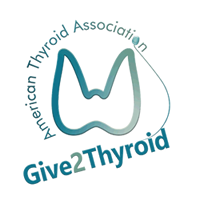BACKGROUND
Thyroid function can be affected by cancer chemotherapy drugs given to treat non-thyroid cancers. Hypothyroidism is more common than hyperthyroidism. This is especially true with some of the newer drugs that affect the immune system. One class of cancer chemotherapy drugs is tyrosine kinase inhibitors (TKI), of which there are >20 TKI drugs. TKI drugs are active against a variety of solid cancers, especially kidney cancers and some GI cancers. They are also active against progressive thyroid cancer, although thyroid cancer patients are already hypothyroid after thyroidectomy and radioactive iodine therapy. Interestingly, the development of hypothyroidism during cancer treatment of non-thyroid cancer may be linked to improved survivals.
This study examined the development of hypothyroidism in patients receiving TKI drugs for non-thyroid cancer and the effect on survival.
THE FULL ARTICLE TITLE:
Lechner MG et al. 2018. Hypothyroidism during tyrosine kinase inhibitor therapy is associated with longer survival in patients with advanced nonthyroidal cancers. Thyroid 28:445–453. PMID: 29652597.
SUMMARY OF THE STUDY
Data on more than a 1000 patients who received one of 6 TKI drugs was collected and reviewed. Almost half of the patients studied had renal cell cancer. Those patients who had TSH levels done before and within 6 months after the day the TKI was started were included. Patients with pre-existing thyroid disease or thyroid cancer were not included in the study. Data was also collected regarding treatment with levothyroxine for those patients who did develop hypothyroidism.
Women were more likely to become subclinically or overtly hypothyroid (53%) compared to men (34%). Of the 538 patients in the study, subclinical hypothyroidism developed in 71 (13%), and overt hypothyroidism in 144 (27%).




